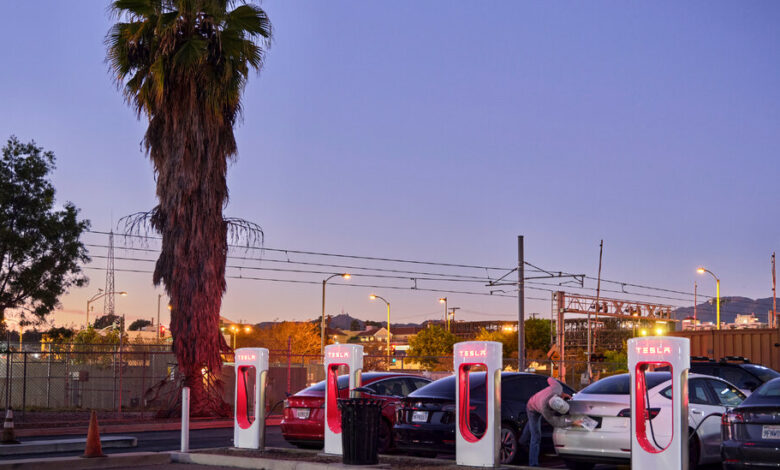Trump Auto Tariff: How the major car brands will be affected

Tariffs on cars and auto parts that President Trump announced on Wednesday will have far -reaching impact on vehicle manufacturers in the United States and abroad.
But there will be significant differences based on the circumstances of each company.
Tesla
Mr. Trump’s confidant, the company operated by Elon Musk, makes cars selling in factories in California and Texas in the United States. As a result, it is probably exposed to tariffs.
But the company buys some parts from other countries – according to the National Highway Traffic Safety Administration, about a quarter of the price in its cars.
In addition, Tesla is struggling with the worldwide falling sales, as Mr. Musk’s political activities and statements have closed medium and liberal car buyers. Some countries could take retaliation against Mr. Trump’s tariff by targeting Tesla. Some Canadian provinces are already Stop offering encouragement To purchase Tesla’s electric vehicles.
General Motors
The largest American automekar imports its best -selling and most profitable cars and trucks, especially from Mexico where it has many large factories that churning models such as Chevrolet Silverrado. Last year, about 40 percent of GM sales in the United States were vehicles gathered abroad. This can make the company sensitive to tariffs.
But unlike some other vehicle manufacturers, GM has posted strong profits in recent years and is considered to be good financial positions by analysts. This can help tariffs in better weather than other companies, especially if the levy is removed or diluted by Mr. Trump.
Ford Motor
Ford is very less dependent on imported cars than its many rivals. It makes about 80 percent of vehicles selling in the United States in the country. As a result, it would be relatively untouched by 25 percent tariff on imported vehicles.
But the company still depends on foreign factories for major parts such as engines. For example, a Ford factory in Ontario makes engines for some of its pickup trucks. Ford is losing billions of dollars on electric vehicles. One of its three battery-operated models, Mustang Mach-E, is produced in a factory near Mexico City.
Stelantis, which was created by the merger of 2021 Fiat Chrysler and Puezo, is also struggling with dull sales and looking for a new Chief Executive Officer. Those challenges put the company at greater risk with some other people like Nissan, especially if tariffs live in place for months or years.
Toyota
Like other Japanese vehicle manufacturers, Toyota is very dependent on the United States and sold 2.3 million cars in the country last year. About 1 million of those vehicles were built in other countries, many of them in Canada, Mexico and Japan. This can be a major problem for vehicle manufacturers like the company and Subaru and Mazda, with which Toyota works closely.
But Toyota, the world’s largest vehicle manufacturer, is in better position than other vehicle manufacturers. It is beneficial and considered by analysts as one of the best companies in the global auto industry.
Voxwagen
Europe’s largest vehicle manufacturer can really hurt by tariffs as it is just one factory in the United States, in Chetanogo, Tenne, where it makes Atlas and ID4 Sport Utility Vehicles. It imports several of its cars, including Audis from Mexico and Volkswagans and Porsche from Germany.
The company has fought financially in recent years as its sales have fallen rapidly in China, where domestic vehicle manufacturers have grown quickly by introducing many affordable electric and hybrid vehicles. Volkswagen expected to create an inroad in the United States, but Mr. Trump’s latest tariffs can make that difficult task even more difficult.
Hyundai and Kia
South Korean stabets have increased impressive sales in the United States in recent years. Companies have also invested at a new electric vehicle factory in Georgia that is starting to increase production, which can help them avoid tariffs on some models.
On Monday, Hyundai’s Executive Chairman, Yuisun Chung, along with Mr. Trump announced that his company would invest another $ 21 billion in the United States, including a new steel factory in Louisiana. Even though Hyundai and Kia are now three factories in Georgia and Alabama, they will not be able to avoid tariffs on hundreds of thousands of cars importing in the United States. Many of the vehicles came from South Korea, who interacted with the United States in 2007 on a trade agreement that was updated during Mr. Trump’s first term.
,
#Trump #Auto #Tariff #major #car #brands #affected




